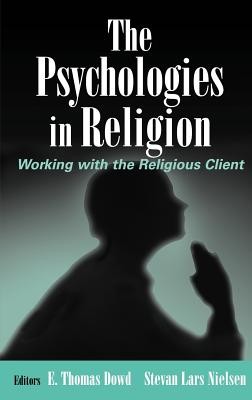
- We will send in 10–14 business days.
- Publisher: Springer Publishing Company
- ISBN-10: 0826128564
- ISBN-13: 9780826128560
- Format: 15.5 x 23.5 x 2.3 cm, hardcover
- Language: English
- SAVE -10% with code: EXTRA
The Psychologies in Religion (e-book) (used book) | bookbook.eu
Reviews
Description
"Listed in Today's Books, Book Register as a "!!!Must Read" title.
This book is really a manual that every therapist should have, if he or she does not already have the knowledge and insight contained within its pages. ...Infinitely enjoyable"--PsycCRITIQUES
Religious upbringing influences people in ways that are difficult or impossible to describe; this book provides a "window on their world." The Psychologies of Religion examines the thinking, personality, and development processes as well as specific clinical concerns of clients who are members of particular religious groups. Each contributing author brings dual expertise to their chapters, expertise about a particular religion and psychological sophistication; a look from the inside out. In addition, the book covers possible future religious development as spiritualism beings to replace institutional religion and as religious choice replaces religious constraint.
All therapists who want to understand how religious people really think will find this book helpful.
EXTRA 10 % discount with code: EXTRA
The promotion ends in 17d.08:32:44
The discount code is valid when purchasing from 10 €. Discounts do not stack.
- Publisher: Springer Publishing Company
- ISBN-10: 0826128564
- ISBN-13: 9780826128560
- Format: 15.5 x 23.5 x 2.3 cm, hardcover
- Language: English English
"Listed in Today's Books, Book Register as a "!!!Must Read" title.
This book is really a manual that every therapist should have, if he or she does not already have the knowledge and insight contained within its pages. ...Infinitely enjoyable"--PsycCRITIQUES
Religious upbringing influences people in ways that are difficult or impossible to describe; this book provides a "window on their world." The Psychologies of Religion examines the thinking, personality, and development processes as well as specific clinical concerns of clients who are members of particular religious groups. Each contributing author brings dual expertise to their chapters, expertise about a particular religion and psychological sophistication; a look from the inside out. In addition, the book covers possible future religious development as spiritualism beings to replace institutional religion and as religious choice replaces religious constraint.
All therapists who want to understand how religious people really think will find this book helpful.


Reviews